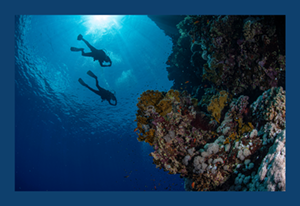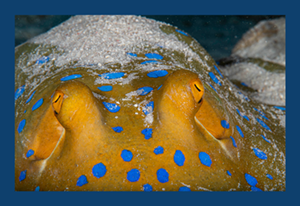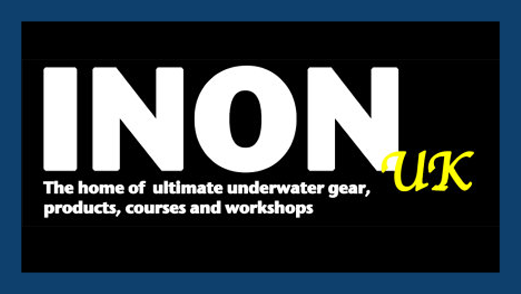Inon Level 1 Photography Courses
Take your photography to the next level.
 INON UK’s Level One underwater photography course is considered the most comprehensive beginner’s to intermediate program available. It is designed to show you how to take high quality underwater photographs consistently.
INON UK’s Level One underwater photography course is considered the most comprehensive beginner’s to intermediate program available. It is designed to show you how to take high quality underwater photographs consistently.
Our INON UK instructors do this by showing you simple rules to follow that remove the element of luck from taking pictures under the water. It is suitable for divers using underwater compact, compact system and DSLR cameras.
Here at Ocean View we have four INON Instructors to take you through the myriad of settings on your camera, and how best to use it to improve your underwater photos.
 INON UK’s Level One underwater photography course shows you how to take great pictures ‘in camera’. If, like many divers, you thought you would always have to spend ages ‘fixing’ your underwater pictures later in Photoshop, this course will change your mind.
INON UK’s Level One underwater photography course shows you how to take great pictures ‘in camera’. If, like many divers, you thought you would always have to spend ages ‘fixing’ your underwater pictures later in Photoshop, this course will change your mind.
The INON UK Level One course blends learning essential theory with mastering practical skills topped off with developing hands on underwater photography experience.
This course runs over two days consisting of classroom theory modules, practical pool modules followed by a debriefing feedback session with your instructor.
SCUBA equipment is not supplied for this course but can be rented for a small fee.
COURSE PRICE & DURATION: £300 / 2 days.
PREREQUISITES: PADI Open Water or equivalent
SCUBA EQUIPMENT REQUIRED: Standard set of SCUBA equipment
CAMERA EQUIPMENT REQUIRED: Minimum of camera and housing.
CAMERA EQUIPMENT SUGGESTED: Strobes, arms and wet lens, however these can be supplied with notice
MIN/ MAX NUMBERS: Minimum 2 participants/ Maximum 4 participants

CONTACT US
photography@oceanviewdiving.co.uk

F.A.Qs
Below we have put together a few of the more common questions to help with your course:
1. Do I need my own camera?
You will need to bring your own camera and housing. There are so many different makes and model of camera these days, it’s not feasible for your instructor to know how to change the settings on every one so you should be familiar with how your camera and housing works. Your instructors will want to dedicate time to teaching you about which settings to use, not about how to change settings on your camera.
Your camera housing should be capable of supporting an external flash so, for example, a clear plastic bag would not be enough!
If you have a strobe (underwater flash), arms and joints for supporting the strobe and a cable to trigger it, please bring them too.
2. What is the minimum spec of camera required
It HAS to have the ability to control the shutter-speed, aperture (f-stop) and ISO  whilst the camera is within the housing. You should be familiar with how to change each of these settings whilst the camera is within the housing.
NB If you are intending to bring a DSLR, you should bring one macro lens and one wide angle lens, along with the appropriate port and/or zoom gear.
3. Do I need my own dive gear
Dive gear can be provided for a small fee, but it’d be sensible to have your own to prevent you needing to spend time finding gear which fits properly. A leaky mask will cause no end of irritation when you’re trying to look at the back of the camera.
4. How long will we be in the water for?
Course time is split between classroom and pool. We try to give you as much time to practice in the water as possible but your instructors have a lot of knowledge to impart which cannot be demonstrated underwater.
5. Do I need to do any pre-reading / home study before the course day?
If you are not familiar with your camera’s controls, your pre-study will be to become an expert in how to adjust shutter-speed, aperture and ISO. Your instructors will give guidance on what settings to select but you’ll be expected to know how to make the changes to your camera (Whilst the camera is within it’s housing!)
7. What skills do I need?
Good diving skills and especially good buoyancy control are essential for this course (and for taking underwater photos in real life!). If you feel you need a brush-up on your diving skills or buoyancy, please sign up for a scuba review or a PPB course before signing up for this course.
8. What should I remember to bring apart from the obvious towel and swimming stuff?
Please ensure that you have PLENTY of space on your memory-card as well as a fully charged camera battery. Ideally, bring 2 or more batteries/memory cards just in case one of them fails.
9. Will I be an expert in photography by the end of the course?
Success in photographic competitions is not guaranteed even after taking this course but your instructors can/will offer their unbiased opinion on whether you’re on the right lines. Please don’t take offence if your photos are given harsh criticism during the course!
10. Will I need a wetsuit?
Not only will a wetsuit offer some thermal protection, there is also a hidden benefit to wearing similar gear to that which you’ll wear in the open water… your ability to remain neutrally buoyant will be improved, meaning you’ll spend less time concentrating on your buoyancy and more time on your composition.
11. Will I learn what makes a good photo?
Photography is an art and we can only offer personal opinions on what is a “good photo”. However, this course is designed to give you the skills and knowledge to be able to create whatever type of photo you like. Of course, it’s unlikely you and your instructor will have vastly different ideas about whether a particular photo is good or not.

